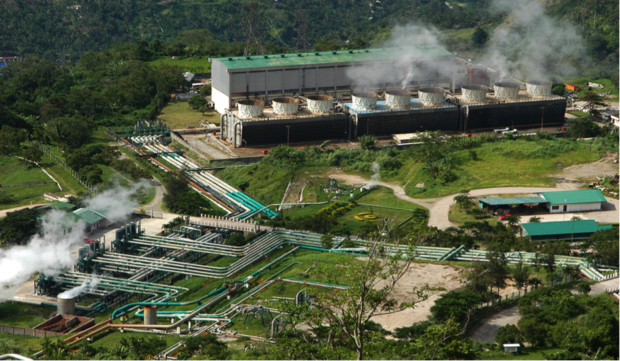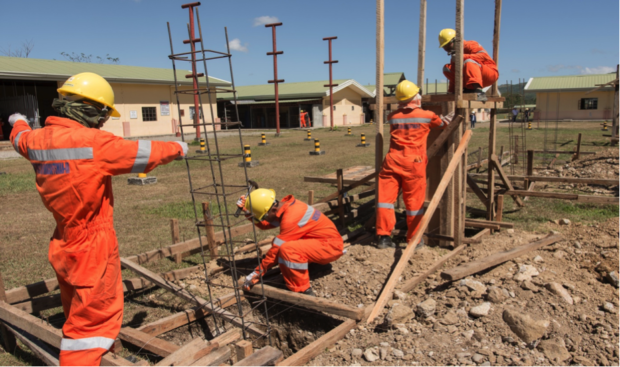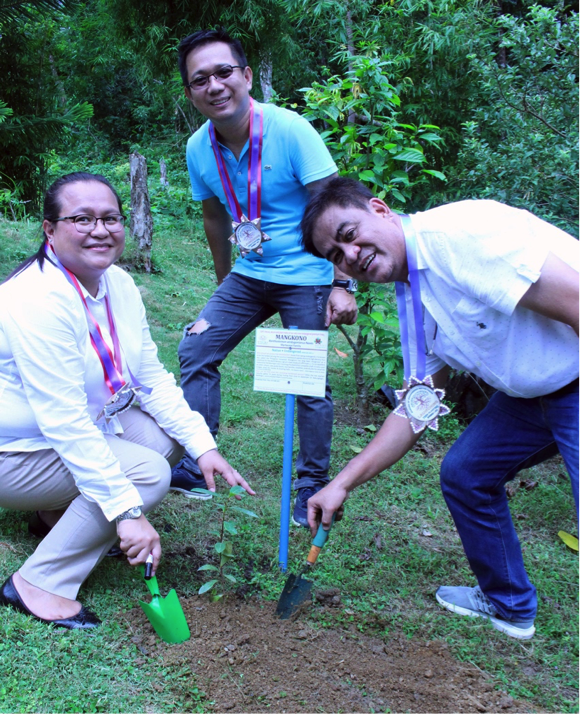EDC forges collaborative pathways to fulfill its regenerative mission
The need to opt for sustainable living and use renewable forms of energy to lessen the carbon footprint that causes global warming should be an initiative of every person and organization in order to save the planet and provide everyone with hope and better life in the future.
This drive for sustainability has always been part of the Energy Development Corporation’s (EDC) existence for over four decades.
“For over 40 years, our company has been rather quietly generating power from geothermal resources. As the Philippines’ premier renewable energy company that accounts for over 42 percent of the country’s total installed renewable energy capacity and as the world’s largest vertically integrated geothermal producer, we take pride in providing the country an essential service that is reliable and socially and environmentally responsible,” said EDC president and chief operating officer Richard Tantoco.
Yet all these years of helping its host communities rise above super typhoons like Yolanda in 2013 and Urduja in 2017 made the EDC realize that sustaining the path we are on by merely doing less harm is no longer enough. It is time to go beyond it by adopting regenerative practices not only for their long-term goals but for national development. Tantoco spoke about the call to be regenerative at a recently held Global Catholic Climate Movement and Focolare Movement’s joint celebration of the Season of Creation, a celebration of praise and thanksgiving to God for the beauty and bounty of creation held every year.
In his talk, Tantoco underscored the need for organizations to do more in reducing their carbon footprint because the “world is already in trouble.”
“We now live in quite dystopian times, characterized by the most unprecedented disruption in generations. And while COVID-19 has gotten everyone’s attention, climate change is the issue that will hit us like a tsunami.”
Globally, geologic-scale changes have been manifesting in record-breaking temperatures, forest fires, severe drought, death of our coral reefs, the melting of the “cryospheres.” These events have been hitting the planet with increasing intensity, regularity and consistency every year now.
“Today, we have a narrowing window left to keep warming within the desired 1.5 degrees Celsius agreed to in Paris under the 21st meeting of the Conference of the Parties (COP 21). The upcoming decade of the 2020s will critically determine whether we succeed or not. To succeed, humanity needs to reduce carbon dioxide emissions by 6 percent every year until we achieve net zero emissions in 2050.”
As sustainable practices are no longer sufficient, EDC calls on organizations to also become a regenerative force to help mitigate global warming and climate change.
“We have a responsibility to our planet and to humanity and we have chosen to take a stand. That stance imposes a duty on us to use our voice to send a distress call to as many people and organizations as possible because we are running out of time,” said Tantoco.
Going regenerative
Regenerative thinking that aims to go beyond sustainability is gathering more interest among organizations, companies, and think tanks from all over the world because of its concepts of restoring, revitalizing, and renewing its own sources of energy and material.
It is about designing businesses that protect and enhance the best qualities of the human spirit, and designing how they work so that they are non-extractive but rather replenishing.
“The Regenerative Business” author Carol Sanford defined it as “a paradigm and accompanying set of capabilities that consider any life form as singular, able to express and grow itself to contribute that essential singularity, over time, to nested wholes in which it is embedded, with reciprocity. It can only be regenerated if pursued as a value-adding process.”

EDC’s Geo 24/7 is at the heart of its decarbonization and regenerative mission since baseload geothermal is clean, renewable and requires lush forests to sustain the geothermal reservoir.
Regeneration for EDC is looking at their business from a wider lens rather than just profitability. The Lopez Group of Companies, which EDC is proudly a part of has recently embarked on a “regenerative” mission, an initiative that aligns its business, resources, and capabilities to “forge collaborative pathways for a decarbonized and regenerative future.”
Regenerative thinking, according to Tantoco, requires a paradigm shift in the ways people should think, adding that there’s a “need to create symbiotic, mutually beneficial relationships with nature and society that benefit more than just the shareholders.”
“Businesses today must urgently become a regenerative force that elevates everything they touch, employees, the environment, communities, co-creators like customers, suppliers and contractors and investors,” said Tantoco.
He said regenerative transformation cannot be done “by entities working alone,” but rather by being mindful that “we exist within highly diverse and nested systems, and that we must all play unique, reciprocal, and synchronized roles in a world that needs to be healed.”
EDC and the rest of the Lopez Group of Companies have put regenerative thinking to work in their respective organizations and are likewise calling other companies to join them in their journey through meaningful collaboration.
Elevating stakeholders
EDC has been conducting climate change workshops and helping its power customers find ways to reduce their own energy consumption and losses. “If our customers become more energy efficient, it lowers their businesses’ carbon footprint,” Tantoco said.
As to its employees, the company has strived to foster a healthy and positive working environment. “It was during this COVID-19 pandemic that management was truly able to show its genuine familial-care or “pampamilyang malasakit”. While we are requiring most of our colleagues to work for home, we formed a skeletal force that expertly operates our power plants and we are providing them with good sleeping quarters, appetizing food, and stable internet so they can always get in touch with their loved ones while working on site.
EDC repurposed benefits–delivered masks, comfortable office furniture, and equipment to employees on work from home status. The company also went further as doing grocery shopping for families of on-premise employees.
EDC provided food, medical supplies, and PPEs to medical frontliners and lent container vans to partner hospitals to be used as quarantine facilities and sleeping quarters for medical staff on duty. It has also donated Rapid Antibody Testing kits, and Real-Time Reverse Transcription-Polymerase Chain Reaction (RT-PCR) machines.

Construction is one of the training courses in EDC-sponsored KEITECH tech-voc school, known for its disciplined and highly skilled graduates that have 100% passing score in TESDA’s national certification tests.
“Beyond this pandemic, we invest heavily in education programs knowing that this is the great equalizer,” said Tantoco. EDC’s SIKAT program is an initiative for promising students to get into the UP college system. While its KEITECH program sponsors around 150 poor kids, who get to live in dormitories and learn martial arts, jungle survival, and even ballroom dancing. To date, the company has already over a thousand graduates from its KEITECH technical-vocational school in Kangan, Leyte.
“We built a state-of-the-art speech lab to help them learn to speak English so that they too can become more global citizens. But most of all, while under our care, the kids learn self-discipline and gain self-confidence.”
Partners in forest restoration
The company is very much involved in reforestation projects. Its BINHI program, established 10 years ago, aims to bring back to abundance the most endangered Philippine native tree species. The project has about 10,000 hectares of degraded forests and open forests in watersheds replanted with indigenous and fruit-bearing trees.

EDC has Jonathan Gaytano’s (center) Grotto de Banloc in Romblon and its other 182 BINHI partners to thank for helping propagate its 96 flagship Philippine native tree species. Also in photo are Romblon Mayor Atty. Lisette Arboleda and EDC Stakeholder Relations Head Eduardo Jimenez.
EDC has also established farmers and community associations, teaching them the value of environmental stewardship.
From planting and growing one of the Philippines’ best coffee beans, its Baslay Farmers Association in Valencia, Negros Oriental, whose members were once slash and burn farmers, have already put up a coffee shop that backpackers frequent. The group has become one of the most award-winning farmer communities in the country.
On top of bridging forest gaps, EDC has likewise been propagating its threatened native tree species with the help of its partners from various parts of the country, now totaling 183, through BINHI.
In 2019, EDC was selected by the International Union for the Conservation of Nature (IUCN) to be their first and only local partner in the Philippines through its Global Tree Assessment secretariat, the Botanic Garden Conservation International, as a result of EDC’s efforts to update the status of 35 of its 96 BINHI flagship threatened native tree species.
Though the end of the COVID-19 pandemic is not yet clear, EDC is pushing forward with optimism on its new journey toward a decarbonized and regenerative future with all these strategies and resources in place.
“Being regenerative starts at home and we need to teach our children as early as now. We need to collaborate–not compete–to make sure that regeneration happens at scale,” Tantoco said.
ADVT.